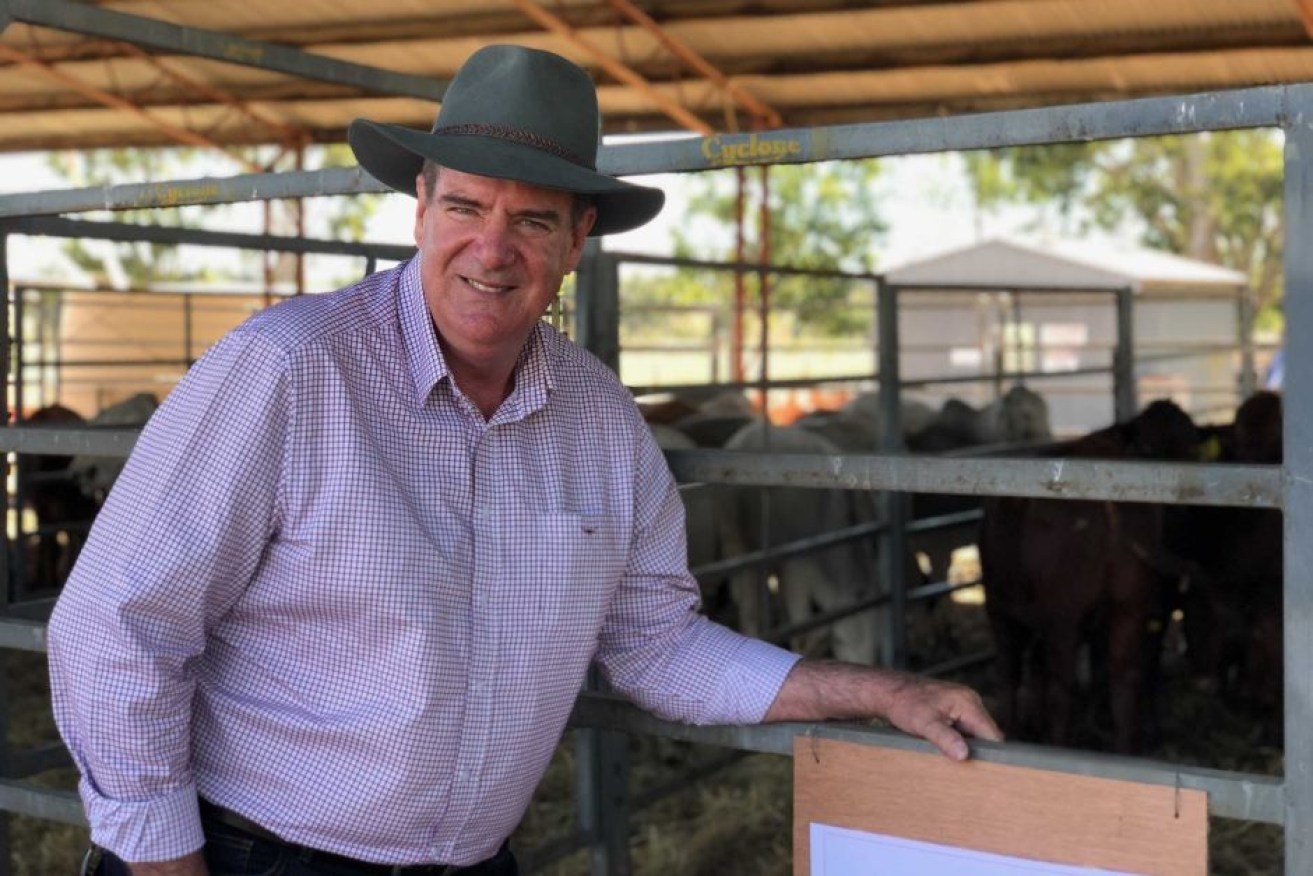Meat to please you, China – and there’s plenty more where that came from
Beef producers are hopeful the trade relationship with China will expand further after a breakthrough on punitive bans.

Agriculture Minister Mark Furner pictured at last year's Beef Australia. (ABC photo).
Beijing dropped restrictions on five abattoirs in Queensland and NSW weeks out from a visit to Australia by Chinese Premier Li Qiang.
The Albanese government welcomed the decision and pledged to continue pressing for the removal of remaining trade barriers on two meatworks as well as rock lobsters.
Mr Li will meet with Prime Minister Anthony Albanese and other senior officials when he visits Canberra in June.
China imposed sanctions worth $20 billion on Australian products in 2020 after the former coalition government called for an independent inquiry into the origins of COVID-19.
Cattle Australia chair Garry Edwards said he was hopeful further facilities would be accredited and there would be an expansion in trade.
“China has potential and is likely over the next five to 10 years to be the largest global consumer of beef production,” he told AAP.
“It’s really important that our federal government keeps working closely with the Chinese government to build better relationships and ensure that the issues don’t end up in the suspension of trade in the future.”
The nation’s 52,000 beef producers had all been affected by the bans, with the Chinese market worth at least $800 million, Mr Edwards said.
The US market had filled the gap and was importing large volumes of beef from Australia, he said.
China has dropped bans on Australian exports since Labor came to office in 2022, with less than $1 billion worth of trade restrictions remaining.
National Farmers Federation chief executive Tony Mahar said senior ministers involved in diplomatic discussions needed to be congratulated for opening the opportunity for more growth in an industry that was trending back to pre-pandemic levels.
“We’re delighted,” he told AAP.
“There’s been a lot of people that have had a hand in making a success out of this great joint effort and it’s something that we should celebrate.
“Like a lot of these things, success will have a thousand parents and failure is an orphan.”
The government ought to call out unnecessary and unjustified trade barriers while respecting China as an important partner, Mr Mahar said.
“You need to do it carefully, you need to do it with diplomacy, and make sure that we’re reflecting the interests of our nation,” he said.
In a statement, the Albanese government reiterated its trade diversification message to Australian businesses.
A stabilisation in the relationship with Beijing has led to barley, cotton, oaten hay and timber exports surging by more than $3 billion over the last 12 months.
Opposition spokesman Dan Tehan welcomed the easing of Chinese trade sanctions.
“It shows that China understands that the trade sanctions that they put in place against Australia didn’t work,” he said.












